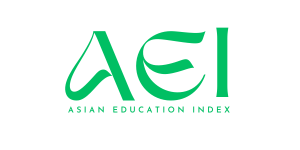Language planning and policy
Keywords:
language policy, language planning, policy implementation, competitive abilityAbstract
This article is about language policy and language planning and some issues that some writers came across the challenges in drawing up a plan, formulating language policy, and implementing and assessing it. LPP is a try by an agent or agents, mainly not at the governmental level (a macro level) to affect an individual’s or certain group’s future language attitudes (a micro level). In LPP, an issue is identified that needs to be solved by people who are designing and implementing a policy. If people targeted by the policy do not share the same perception of the issue, they may oppose its implementation by either doing so themselves or by changing it to suit their own interests or desires.
References
Cummins, J.,&Early, M. (2010), Identity texts: The collaborative creation of power in multilingual schools. Staffordshire: Trentham
Darvin, R., &Norton, B. (2014 a). Transnational identity and a model of investment in language learners: The promise of digital storytelling. Education matters: The journal of Teaching and Learning, 2, (1), 55-66
Darvin,R,&Norton, B (2014b) Social class transitional identity and migrant students: Journal of Teaching and Learning. Identity &Education , 13(2), 111-117
Downloads
Published
Issue
Section
License

This work is licensed under a Creative Commons Attribution-NonCommercial 4.0 International License.
User Rights
Under the Creative Commons Attribution-NonCommercial 4.0 International (CC-BY-NC), the author (s) and users are free to share (copy, distribute and transmit the contribution).
Rights of Authors
Authors retain the following rights:
1. Copyright and other proprietary rights relating to the article, such as patent rights,
2. the right to use the substance of the article in future works, including lectures and books,
3. the right to reproduce the article for own purposes, provided the copies are not offered for sale,
4. the right to self-archive the article.













